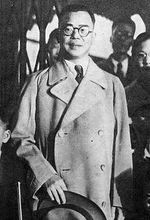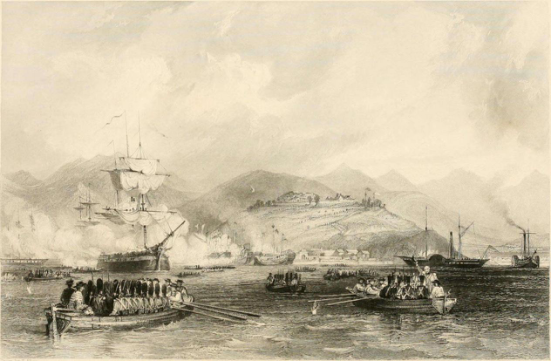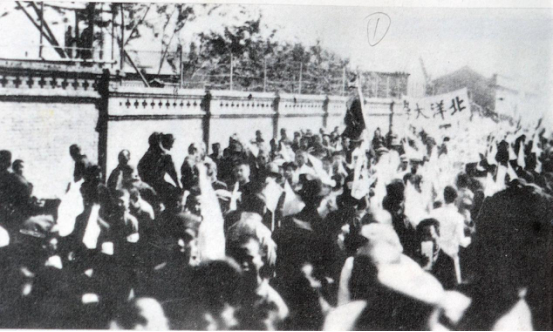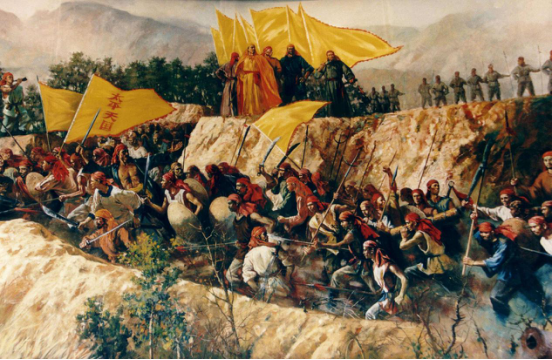Jiang Tingfu’s "Modern History of China" - Thoughts on the Humiliation History of Modern China
Mr. Jiang Tingfu's scientific research in modern Chinese history indeed opened up a new trend alongside Mr. Luo (Luo Jialun). He established a scientific foundation for modern Chinese history, bringing new methods and concepts to the study of history in old China, making him a pioneer.
—Guo Tingyi
Jiang Tingfu (December 7, 1895 – October 9, 1965) was a renowned Chinese historian and diplomat. He studied in the United States at a young age and obtained a doctoral degree. After returning to China in 1923, he served as the first head of the History Department at Nankai University and became a founder of historical studies at the university alongside Liang Qichao. Jiang Tingfu experienced the baptism of war and the shocks of the times, witnessing the decline of feudal dynasties, the invasion of Western powers, and the self-redemption of the Chinese nation in dire straits. He also observed the new China rising from the ashes of war and developing from nothing.

The book "Modern History of China" by Jiang Tingfu is both a historical and a storytelling work that is far from dull. Instead, it evokes empathy; each time one reads about the invasions by Western powers, it feels like a knife to the heart. The author, with his extensive historical knowledge, broadly consulted various literature and combined his life experiences and observations to depict nearly a century of history since the Opium War in a vivid and authentic manner. This book chronicles significant events from the period of the opium ban by Lin Zexu to the Northern Expedition in the Republic of China. The opening of the text discusses Britain selling opium to China, which directly led to conflicts of interest, followed by Lin Zexu's opium ban. This sparked the flames of resistance, marking the beginning of modern Chinese history, and also the beginning of the history of humiliation and struggle. Beginning with the Opium War, China faced relentless foreign invasions, was forced to sign hundreds of unequal treaties, and incurred vast reparations in currency and materials while losing significant territories. The modern history was a period in which China connected with the world, being compelled by force to accept ideas like science and democracy.

At that time, the Qing dynasty was swayed by foreign invasions, and many patriotic individuals endeavored to learn Western culture, continuously exploring ways to save the country and its people. There were indeed those who sacrificed their lives for the "nation" and the people. Notable figures such as Zeng Guofan, Zuo Zongtang, and Li Hongzhang initiated the "Self-Strengthening Movement"; Kang Youwei and Tan Sitong led the "Hundred Days' Reform"; and revolutionary figures like Sun Yat-sen and Huang Xing spearheaded the bourgeois revolution, while the Kuomintang ostensibly unified the Northern Expedition across the nation. However, I found it strange that the "May Fourth Movement," a significant event, was absent from the narrative, indicating that the author approached history from a political perspective, focusing on major events and describing their backgrounds, causes, and resultant insights.

The author, with his exceptional vision, dissected the fundamental causes of events, severely criticizing the invasions by Western powers, and strongly satirizing the actions of feudal remnants like Hong Xiuquan that harmed the nation and its people. The author possesses an extremely clear understanding of history, such as recognizing the limitations of Sun Yat-sen's revolution. Although Sun's advocacy for capitalist reforms overthrew the Qing government, the inherent weaknesses and compromises of the bourgeois class ultimately led to the failure of the Xinhai Revolution to fulfill its anti-imperialist and anti-feudal tasks, failing to fundamentally change China's semicolonial and semi-feudal societal nature. The author summarizes the thought of Confucianism in conjunction with the situational context, explaining the successes and failures of Confucianism from the root causes. Similarly, Hong Xiuquan's establishment of the "Taiping Heavenly Kingdom," which proclaimed "the world belongs to the public," ultimately led to kingship and land division, amassing great wealth and abducting women for personal use.

The author provides an objective and comprehensive evaluation of history from multiple angles, knowledge that is not easily accessible to ordinary people. History brings us a sense of heaviness, yet we must recognize the essence of events, learn lessons, and summarize experiences from it. Was the failure of the Opium War due to weak military forces, backward popular thought, or outdated technology? Or was it due to the presence of feudal systems? What truly caused this? The author concludes that "the fundamental reason for the defeat in the Opium War is our backwardness," emphasizing military failure as the most critical aspect, asserting that military strength is the guarantee for victory in war. At the time, the Qing government's low technological level and outdated weaponry resulted in an insufficient military capability to withstand invasions. But why were we backward? One reason is that "the conservatism of the Chinese people is too strong," another is that "our culture is the lifeline of the scholar-official class," and thirdly, "the Chinese scholar-official class lacks an independent and fearless spirit."
This book chronicles an indelible history of humiliation, connecting each event and presenting them vividly before our eyes, stirring our emotions. At that time, the Qing Dynasty and the suffering masses were trampled by foreign invaders, while the political system, class contradictions, and movements for national salvation led us to learn progress through historical shocks. Jiang Tingfu's "Modern History of China" allows us to profoundly recognize the backwardness and inadequacies of systems, culture, technology, and education at that time while also showcasing the courageous spirit of patriotic individuals in the exploration of paths forward.
